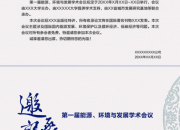高一牛津英语课件
时间:2021-08-31高一牛津英语课件
《牛津英语》是译林出版社出版的图书,此书结构清晰、语言简洁,适合初、中、高级读者。下面小编收集整理高中牛津英语课件,供大家参考。
篇一:牛津高中英语课件
模块一(第1讲)
【教学内容与教学要求】
一、 教学内容:
牛津高中英语模块一Unit 1 (上)
二、教学要求:
1.掌握和校园生活有关的常用单词、词组与句型。
2.学会描述校园生活和学校设施。
High school is a time of discovery, learning and hard work!高中是探索、学习和辛勤劳动的时期
Huge campus and low-rise building 学校面积大,没有高层建筑。
Twelve laboratories are available for different experiments.12个实验室可供不同试验使用。
Each room comes with its own bothroom and Internet access.每个房间都有自己的卫生间和英特网接口。
3.学习阅读技巧:skimming&scanning。
4.语法:定语从句(一)
【知识重点与学习难点】
一、 重要单词:
access achieve attend assembly article available average canteen club challenging context donate display experience extra graduate gym heading locker low-rise literature poster relax
二、重点词组:
class teacher 班主任 at ease with 和….相处不拘束 school hours学校作息时间 earn respect from 赢得…的尊敬 sound like听起来象 for free 免费 get a general idea 了解大意 as well as 除….以外, 也 key words 关键词 word by word 逐字逐句地 find one’s way around 认识路 develop an interest in 培养对….的兴趣 surf the Internet网上冲浪
【难点讲解】
1. What is your dream school life like?
你理想中的学校生活是什么样子?
这里 dream 表示心目中最理想的. 如 dream team (梦之队)。
2. Going to a British high school for one year was a very enjoyable and exciting experience for me.
去一所英国中学读书一年对我来说是一次令人愉快和兴奋的经历。
Going 在本句里作动名词,它和后面的to a British high school for one year构成动名词短语作句子的主语。Go to a British high school本来是个动词词组,在go 后面加上ing 后,它就具备名词的特性可以在句子中充当主语、宾语或表语。
动词的现在分词和过去分词都可以作定语,但所表达的意思不同, 现在分词作定语常表示“令人…”、“正在….”;例如exciting news, sleeping dog; 过去分词则有被动或完成的意思,常表示“感到….的”、“被….的”,例如: an excited crowd of people, broken heart.
3. I was very happy with the school hours in Britain because school starts around 9 a.m. and ends about 3.30 p.m.
我对英国学校的作息时间很满意因为学校大约上午9点开始上课,下午3点半左右放学。
Be happy with=be pleased with, around=about。
4. This means I could get up an hour later than usual as schools in China begin before 8 a.m.
这意味着我可以晚一小时起床,因为在中国学校8点钟上课。
as adv.同样地, 被看作, 象
prep.当做
conj.与...一样, 当...之时, 象, 因为
本单元多次出现as, 用法各不相同,应注意比较。另外as 还可以构成一些常用词组:as if就好像, as far as就….而言, so as to以便于, as for至于, such as例如,等等。
mean: 意味着, 后面通常加名词或宾语从句。例如:
The attack of Pear Harbor meant a declaration of war with the United States.
The raise of salary means that I can send my daughter to a better school.
5. He also told us that the best way to earn respect from the school was to work hard and achieve high grades.
他还告诉我们赢得学校尊敬的最好方法是努力学习并取得好成绩。
The best way to do sth is to…..结构用来表达做某事的最好方法是….., 例如:
The best way to learn English is to use it as often as possible.
6. I found the homework was not as heavy as what I used to get in my old school, but it was a bit challenging for me at first because all the homework was in English.
我发现这儿的家庭作业没有我原来学校的多,但一开始对我有些挑战性,因为所有作业都是英语的。
As…..as, 中间加形容词或副词,一般要连接两个相同的句子成分, 请比较下面两句话:
You hate him as much as I (=You hate him as much as I hate him).
You hate him as much as me(=You hate him as much as you hate me).
Used to 过去常常, 隐含的意思是现在的情况已经不同。例如:
She used to study very hard. ( She does not study so hard any more).
Used to 的否定形式是usedn’t to/ didn’t use to
注意:be used to sth/doing 表示习惯于….
7. Cooking was really fun as I learnt how to buy, prepare and cook food.
当我学着怎样买菜、洗菜、烧饭时,烹饪真的是一件有趣的事。
fun是名词,有趣的事情, 副词really并非修饰它,而是修饰前面的be动词was
试比较: He is really a funny guy. 和 He is a really funny guy.这两句意思虽然相同, 但really修饰的对象不同,因此说话的侧重点也不同。
8. I do like eating desserts after meals as you mentioned in your article.
就像你在文章中提到的那样,我的确喜欢在饭后吃甜食。
Do、did在陈述句中,用在动词前表示强调,可译作的确、确实。
9. Upon finishing his studies, he started travelling in China.
完成学业之后,他开始在中国旅行。
介词upon/ on加doing相当于带as soon as 的时间状语从句。
Upon finishing his study=As soon as he finished his study
10. Former student return from China
一位校友重中国归来
former, past, old 虽然都和过去有关,但 侧重点不同。 former:“过去曾经是...的、 前任….”, past: “过去的” old“老的、从前的”。例如: former president前总统,past experience以往的经验,my old school我的母校。
11. earn, achieve和gain
这三个单词的基本意思都是“get”但含义不尽相同, earn :get as the reward of work(挣,得到…作为工作的回报), achieve :get what you want by effort(成就,通过努力达到某个目标), gain和“get”的用法最接近,它对得到的方法和内容都没有具体要求。常见搭配:
earn money/ a living/ one’s respect/ one’s bread, achieve a gaol/ success/ purpose/ high grade, gain experience/ weight/ an advantage over/ time/ the upper hand( 占上风)/ ground(取得进步).
【语法】
定语从句(1)
用来说明主句中某一名词或代词(有时也可说明整个主句或主句中一部分)而起定语作用的句子叫作定语从句。定语从句的作用和作定语的形容词、介词词组、分词词组相似,有时可以相互转换,例如:金发女孩可译作a blonde girl ,a girl with blonde hair或a girl who has blonde hair。定语从句通常由关系代词that/ which/ who/ whom/ which/ as或关系副词when/ where/ why引导,这些词既指代主句中要说明的名词或代词, 又充当从句中的某个句子成分。请看例句:
1.Tom is the only person who can keep a cool head in time of crisis.(who指代主句中的先行词person,在从句中作主 语)
2.Tom is the only friend whom(或who) I can rely on. (指代friend,在从句中作宾 语, 所以常用代词who的宾格形式).
3.China is no longer the weak nation that she used to be. (关系代词that指代weak nation,在从句中作表语)
4.The school whose floor space is very limited can’t take in one more student. (关系代词whose指代the school’s ,从句中作floor space的定语)
5.I like to go to the gym where I can have a work-out after sittiong for a day. (关系副词where指代主句中的地点状语gym 在从句中作状语)
【阅读技巧】
Skimming & Scanning
Skimming略读,skim原意是轻轻掠过表面,作为阅读技巧是指通过浏览文章标题,主题句,插图和图表等方法了解文章的大意。 Skan, 本意是扫描,这里指用眼光快速扫视书报等材料寻找我们想要的信息。他们的区别在于Skimming是为了了解文章的大意,而Scanning是为了寻找某些具体信息。Skimming & Scanning都是快速阅读的重要策略,也是信息时代我们必备的技能。尤其是在阅读英语时,注重练习Skimming & Scanning可以帮助克服逐字逐句的阅读习惯(如finger-point reading, lip reading),提高阅读速度。
【补充阅读】
阅读这篇文章,根据中文提示和上下文写出所缺的单词:
My School Day
I leave home at 6:45 and walk 20 minutes to ______(赶) a bus to school. The bus is a special one just for kids going to my school. The _______(路程) on the bus takes an hour because it has to keep stopping to pick up other students along the way.
When I arrive at school, I______(领取) my Tablet PC from the Flexi (Flexiable Learning Centre). Then I go to my Tutor Room for Registration at 8:30. We listen to announcements to see what special things are happening at school today or this week.
At about 8:50 we leave Tutor Room to go to our First Period. Every day I have a different Lesson the first period. Normally it is Humanities but I also have Maths, Drama and Music, and French on the other days. Each period lasts an hour.
All my lessons are in different rooms and places around the school. Each Room either has a three_____(位) number or a name. The numbers are very hard to remember!. I have different teachers for each lesson. I have a _______(存物柜) where I can store some of my stuff but otherwise I have to carry it all around with my in my bags.
Swipe Cards
Every Student carries a swipe card. We swipe into every lesson to let the school know that we have _____(参加) that certain lesson and to know where we are in case of emergencies.
On the Swipe Card there are two stripes, a black and a brown. The brown is to swipe into lessons and the black is to get into the toilets and buildings.
We can put money on our Swipe cards instead of carrying cash around. When we want to pay for snacks at the Tuck Shop or canteen we just hand over our cards and they deduct the money.
Subjects
Maths, English Science ICT
Drama Music Art PE
Humanities (History, Geography, and Religion) French or Spanish
Time Table
9:00 1st Period
10:00 2nd Period
11:00 - 11:20 Break
During break, I have a snack and play and chat with my friends. Usually we play 'IT' a chasing game. Snow ball fight when it snows is dead fun.
11:20 3rd Period
12:30 4th Period
1:30 - 2:10 Lunch
I bring a packed lunch to school but occasionally I have school dinners in the School______(食堂).
2:10 5th Period
3:10 End of School
Sometimes I stay after school for clubs.
Canteen
The Canteen is open at Lunch Time and Break Time. Most hot food is served only at lunch time. Chips are only_______(买的到) on Mondays and Fridays.
【同步练习】
一、 用适当的关系代词或关系副词填空:
1.I still remember the time _______ I first became a high school student.
2. There are many places in London _______ you can buy a cup of coffee.
3. That is the reason _____ he is so keen on school activities.
4. China is a country_______ history can be dated back to 3000 BC.
5. He is driving a car ______ can travel at 150 mile per hour.
6. He has to fly to all the major cities of the world ______ his company has set up offices.
7. The lady _____ we met in the bar is eyeing us from the corner .
8.We are facing the same problem ____ we did years ago.
二、将下列每组句子合成一个带定语从句的复合句:
1. The anti-Japanese aggression war broke out on July the 7th. It lasted for eight years.
2. On his website we saw some photos. Mr. Lee took these photos in Europe.
3. On the way to school I saw some trees. Their leaves were eaten up by insects.
4. Shelley likes to spend her leisure time in the students’ union. She can meet many international students there.
5. Jane’s father wants her to be a singer. He himself has always wanted to be a singer himself.
参考答案
一、
1. when 2. where/in which 3. why 4. whose 5. which/that 6. where 7. whom/who 8. as
二、
1. The anti-Japanese aggression war which lasted for eight years broke out on July the 7th.
2. On his website we saw some photos which Mr. Lee took in Europe.
3. On the way to school, I saw some trees whose leaves were eaten up by insects.
4. shelley likes to spend her leisure time in the students’ union where she can meet many internatioal students.
5. Jane’s father wants her to be the singer that he himself has always wanted to be.
阅读填空:
catch, journey, collect, digit, locker, attended, canteen, available











